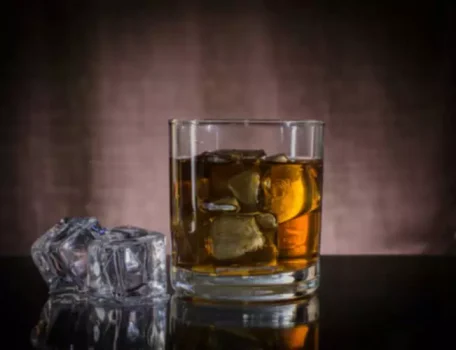Impact of Alcohol Abuse on the Adaptive Immune System PMC

The trillions of microbes in your colon and large and small intestines are critical to proper digestion. But when you ingest too much alcohol for your liver to process in a timely manner, a buildup of toxic substances begins to take a toll on your liver. And that’s on top of the toll that alcohol use can take on relationships, not to mention the potential for financial strain and legal troubles.
Molecular Mechanisms of Dose Dependent Modulation of Immunity

These changes include direct addition of a methyl group to DNA (i.e., DNA methylation) or chemical modifications of the proteins (i.e., histones) around which DNA is wrapped, such as acetylation, methylation, and phosphorylation (Holliday 2006; Hsieh and Gage 2005; Murrell et al. 2005). Both regulatory mechanisms related to miRNA and epigenetic mechanisms are interrelated (see figure 3). Thus, several miRNAs themselves are regulated epigenetically but also are capable of targeting genes that control epigenetic pathways (e.g., polycomb group-related genes and histone deacetylase). Studies have identified ethanol-mediated changes in both miRNA abundance (Miranda et al. 2010; Pietrzykowski 2010) and epigenetic modifications within PBMCs (Biermann et al. 2009; Bleich and Hillemacher 2009; Bonsch et al. 2006). Other investigators have described ethanol-induced epigenetic modifications (i.e., alterations in histone acetyltransferases and histone deacetylases) in liver cells (i.e., hepatocytes) in rodent models of binge drinking and ALD (Bardag-Gorce et al. 2007; Choudhury et al. 2010; Park et al. 2005; You et al. 2008). However, very few studies have examined ethanol-induced changes in gene expression and regulation within specific immune-cell subsets.

Statistical Analysis
More detailed studies of the relationship between alcohol, ErbB2/neu, and invasion in the human breast cancer cell line T47D found that activation of the EGF receptor by addition of EGF did not significantly affect ethanol’s ability to enhance invasiveness (Luo and Miller 2000). Conversely, prevention of ErbB2/neu production inhibited the ability of ethanol to increase migration (Luo and Miller 2000). Much progress has been made in elucidating the relationship between alcohol consumption and immune function and how this interaction affects human health.
Modulation of innate immunity by alcohol
- In one of the first experiments conducted in melanoma, 6- to 8-week-old female CDBA/2F1 mice consumed water or 20 percent alcohol for 52 weeks before being inoculated in a leg with the Cloudman 8-91 melanoma tumor (Ketcham et al. 1963).
- Those studies showed decreased cytolytic activity of NK cells in C57BL/6 mice consuming 20 percent ethanol for 4 weeks; however, no differences existed in the metastasis of B16-BL6 melanoma cells in alcohol-consuming and control animals (Meadows et al. 1993).
- Recently, Do et al. investigated the effects of a high-glucose or -fructose diet on gut microbiota and intestinal permeability, as well as on blood endotoxin levels, inflammation and fat accumulation in a mouse model [6].
- Finally, invasion of HT1080 cells from the tumor into blood vessels (i.e., intravasation), which occurs during metastasis, increased more than eightfold in response to ethanol.
- Across cultures and traditions, people worldwide drink alcohol when celebrating, socializing, and relaxing.
In addition, most studies have been done in vitro using primary cells or cell lines in the presence of rather high, constant doses of ethanol. Similarly, most rodent studies to date have focused on acute/short-term binge models utilizing high concentration of ethanol (20% ethanol) as the sole source of fluid, a possible stressor in itself. Therefore, there is a pressing need for in depth studies that examine dose-dependent effects of chronic ethanol consumption on immunity in vivo to allow for the complex interactions between ethanol, its metabolites, HPA signaling, nutritional deficiencies, and the immune system. These observations could explain why animals drinking moderately generated a more robust response to MVA vaccination compared to controls and animals that drank to intoxication since these factors are critical for lymphocyte proliferation, T cell activation and effector function, and immune cell recruitment.
- Vitamin D has long been known to have a critical role in calcium and phosphorous homeostasis.
- These observations suggest that immune defects seen in individuals with AUD could also be mediated by nutritional deficiencies in addition to barrier defects and functional changes in immune cells.
- Genetically predicted levels of alcohol consumption and the risk of autoimmune inflammatory diseases.
- These epigenetic modifications, which include methylation of the DNA as well as modifications (e.g., acetylation and methylation) of the histone proteins around which the DNA is wound, determine whether the complex of DNA and histones (i.e., the chromatin) is in an active or inactive conformation.
- The alcohol-related decrease in peripheral B cells primarily seems to be mediated by a decrease in the frequency of the B-2 B cells.

Much research regarding the role of the immune response in oncogenesis has centered on hepatocellular cancer (for excellent recent reviews, see Aravalli 2013; Stauffer et al. 2012; Wang 2011). However, less is known regarding the role and interaction among alcohol consumption, immune modulation of tumor growth, blood vessel formation (i.e., angiogenesis), metastasis, and survival. It is well established that immunosurveillance by the innate and adaptive immune systems plays important roles in the prevention of cancer https://ecosoberhouse.com/ and in controlling cancer survival (Fridmann et al. 2012; Rocken 2010). However, direct or indirect interactions of the tumors with their microenvironment can facilitate immune evasion so that the tumor is not detected by the immune system and thus can spread uncontrolled. Tumors also release factors that can directly or indirectly suppress antitumor immune responses, thus facilitating angiogenesis, invasion of surrounding tissues, and metastasis to distant sites in the body (for a general review, see Jung 2011).
Alcohol and HIV Effects on the Immune System
Lowered inhibitions can lead to poor choices with lasting repercussions — like the end of a relationship, an accident or legal woes. Each of those consequences can cause turmoil that can negatively affect your long-term emotional health. The morning after a night of over-imbibing can cause some temporary effects on your brain. Things like trouble concentration, slow does alcohol weaken your immune system reflexes and sensitivity to bright lights and loud sounds are standard signs of a hangover, and evidence of alcohol’s effects on your brain. That’s because your body already has processes in place that allow it to store excess proteins, carbohydrates and fats. So, your system prioritizes getting rid of alcohol before it can turn its attention to its other work.

Integrated single cell analysis shows chronic alcohol drinking disrupts monocyte differentiation in the bone marrow
Impact of Chronic Inflammation on Health
- And prolonged alcohol use can lead to mental health conditions like anxiety and depression.
- So, should we back slowly away from the ice cream pint and not even consider touching it until this is all over?
- Rodents have a much shorter life span and often require forced (i.e., not initiated by the animal) exposure to alcohol, which is stressful.
- Some people living with these chronic conditions do everything they can to stave off inflammation and brain fog.
- We talked with Bissell and physician-scientist Stanley Hazen, MD, PhD, to understand what sugar alcohols are and the potential risks that are coming to light.
- Similarly, vitamin C, also an antioxidant, is important for phagocytic activity of neutrophils and monocytes, and enhances T cell responses (Strohle and Hahn 2009).